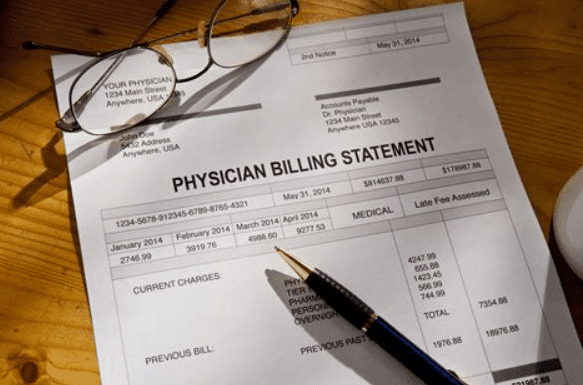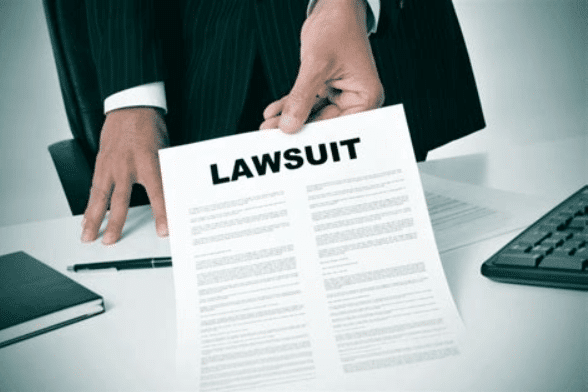If you’ve been sued by Revenue Group, you need to challenge their case. Use ZumaZip.com to respond fast and win!
You’ve just received notice from Revenue Group that you owe on a debt in the form of a summons. The summons will typically give you a time limit for the submission of your answer, as well as the complaint details regarding what you allegedly owe and to who.
Being served with a lawsuit can be frightening. Many people decide not to do anything about it, which is detrimental in the long run. Rather than run from a lawsuit with Revenue Group, you should fight it.
So, what’s the first step when being sued by Revenue Group for debt? Start by checking your records and responding.
ZumaZip makes it easy to file a response.
Get to Know Revenue Group
Revenue Group is an account receivable management company. They are known for being hired by credit card companies to collect on debts.
Known for receiving 27 complaints in the last three years to the Better Business Bureau, Revenue Group responded to all complaints. But 22 of those complainants found their responses unacceptable.
These complaints primarily stated that Revenue Group violated The Fair Debt Collection Practices Act (FDCPA).
Examples where Revenue Group violated this act include:
- Being treated poorly
- Being harassed by the collectors
- Calling multiple times per day or multiple calls in a row
- Neglecting to properly identify themselves and their company
If any of these violations occur, you can counterclaim, meaning you sue Revenue Group. Typically, this will either have your claim thrown out or at least allow you to sue for legal fees and damages.
Beat Revenue Group in Your Debt Lawsuit
Check Your Debt Records
The first step after you have been served is to take a deep breath and check your records. Make sure that the names on the summons, along with any cosigners, are correct.
You should also compare your personal debt records with the summons and see if it matches up. Be sure to check for a few particular items and make a note:
- Who you owed the original debt to
- How much you owe for the debt
- When you incurred the debt
- When the last payment was made on the debt
Note Any Inconsistencies
If anything is incorrect, you can use this as part of your defense. Often your debt will have passed through several collectors before it reaches the hands of Revenue Group. This means that they are not the original creditor that you owed money to.
If amounts, names, and other information are incorrect, there is a lack of proper evidence that you owe the debt. Additionally, if Revenue Group cannot come up with the evidence that you signed for this debt in the first place (meaning the original signed receipt of debt), the case will be dismissed.
Get your case dismissed with ZumaZip.com.
Examine the Statute of Limitations
If there has been enough time passed since your last payment (or since the debt was incurred) you may qualify to bring up the statute of limitations. The statute of limitations varies by state but is a period of time when it is illegal for creditors to sue you for a debt.
Typically, the statute of limitations is somewhere around six years. Suing you after this time is in a direct violation of your consumer rights, meaning the lawsuit against you can be dismissed.
Although the statute of limitations exists, often collection agencies knowingly sue past this date. This is because many people do not respond or try to challenge the debt. When you do so, you will automatically be required to pay a court order that you could have disputed (and won).
Respond to the Debt
Typically, after being served you will have anywhere between 20 to 30 days to respond. After this period, you are at risk of having a judgment entered against you.
When your time is up, Revenue Group will seek to garnish your wages, seize your personal property, and attempt to freeze your bank accounts. All of this can be extremely frightening compared to simply receiving a summons, and you will have wished you responded initially.
If you do not respond at all or show up for a scheduled hearing, then the judge will automatically rule in favor of Revenue Group. This means that you will automatically lose your case and the ability to ever fight the debt in the future.
In some states, you may be able to request a time extension of 30 days, but it is better to respond as soon as possible.
Craft your response in 15 minutes with ZumaZip.com.
After Responding to the Lawsuit
After responding to the lawsuit, be sure to file a copy with the clerk of court in your state. You should also request a stamped copy of your answer to send to the lawyer of Revenue Group.
If you are struggling to produce this on your own, you may consider hiring an attorney or local legal-aid organization. If you do decide to represent yourself, this is known as “pro se.”
Understanding Your Options
If you submit all of the required information and you are successful in defending your case, then the judge will rule in your favor. If this occurs, the lawsuit will be dismissed.
If the judge rules in favor of Revenue Group, then they will begin to attempt to collect your debt. This can come in the form of wage garnishments, seizure of property, and frozen bank accounts.
Another option to avoid a judgment being entered against you is to agree to a payment agreement. You can attempt to negotiate a lower payment than your total debt amount. This is called a settlement. When this occurs, Revenue Group may agree to a dismissal of your case. Typically, this only occurs if you agree to fulfill your debt obligation within a reasonable amount of time.
Beating Revenue Group in a Debt Collection Lawsuit
If you have been sued by Revenue Group, there are options. Check the statute of limitations, examine all of your evidence, and ask them to produce proof of your original debt. By taking these measures, you will have a fighting chance at winning your case.
What is ZumaZip?
ZumaZip is a convenient solution designed to streamline your response to a debt collection lawsuit. Here’s a breakdown of what you can expect when you use ZumaZip:
Firstly, you’ll access our user-friendly web application, which guides you through the process step by step. You’ll be prompted to answer a series of questions related to your specific situation. Once you’ve completed the questionnaire, you have the option to either print out the finalized forms and mail them to the appropriate courts yourself, or you can opt to utilize ZumaZip’s services to file them on your behalf. Additionally, if you choose this option, an attorney will review your document for added peace of mind.
If you’re seeking guidance on how to effectively respond to a debt collection lawsuit, ZumaZip can provide the assistance you need. Feel free to explore our FAQs for more information on what ZumaZip has to offer.
What if I haven’t been sued yet?
If you’ve only received a collections notice, but not a lawsuit, the best way to respond is with a Debt Validation Letter. When a debt collector contacts you in any way, whether it’s by phone or mail, you can respond by formally requesting a debt validation with a Debt Validation Letter . This letter notifies the collector that you dispute the debt and forces them to provide proof you owe the debt. They can’t call you or continue collecting until they provide validation of the debt. This flowchart shows how you can use a Debt Validation Letter to win.
Get started with a Debt Validation Letter here.
How to Answer a Summons for debt collection in all 50 states
Here’s a list of guides on how to respond to a debt collection lawsuit in each state:
- Alabama
- Alaska
- Arizona
- Arkansas
- California
- Colorado
- Connecticut
- Delaware
- Florida
- Georgia
- Hawaii
- Idaho
- Illinois
- Indiana
- Iowa
- Kansas
- Kentucky
- Louisiana
- Maine
- Maryland
- Massachusetts
- Michigan
- Minnesota
- Mississippi
- Missouri
- Montana
- Nebraska
- Nevada
- New Hampshire
- New Jersey
- New Mexico
- New York
- North Carolina
- North Dakota
- Ohio
- Oklahoma
- Oregon
- Pennsylvania
- Rhode Island
- South Carolina
- South Dakota
- Tennessee
- Texas
- Utah
- Vermont; Vermont (Small Claims court)
- Virginia
- Washington
- West Virginia
- Wisconsin
- Wyoming
Guides on how to beat every debt collector
Hey there! Facing off against a debt collector can feel like a daunting challenge, but fear not! We’re here to help you navigate through it all with our handy guides designed to assist you in beating every debt collector you encounter. Whether you’re facing a new lawsuit or dealing with a persistent collector, we’ve got your back. Stay positive, stay informed, and let’s tackle this together!
- Absolute Resolutions Investments LLC
- Accredited Collection Services
- Alliance One
- Amcol Clmbia
- American Recovery Service
- Asset Acceptance LLC
- Asset Recovery Solutions
- Associated Credit Services
- Autovest LLC
- Cach LLC
- Cavalry SPV I LLC
- Cerastes LLC
- Colinfobur
- Covington Credit
- Crown Asset Management
- CTC Debt Collector
- Cypress Financial Recoveries
- Delanor Kemper & Associates
- Eagle Loan of Ohio
- Educap
- Estate Information Services
- FIA Card Services
- Forster & Garbus
- Freshview Solutions
- Fulton Friedman & Gullace LLP
- Harvest Credit Management
- Howard Lee Schiff
- Hudson & Keyse LLC
- Integras Capital Recovery LLC
- Javitch Block
- Jefferson Capital Systems LLC
- LVNV Funding
- Mannbracken
- Mariner Finance
- Medicredit
- Michael J Adams PC
- Michael J Scott
- Midland Funding LLC
- Mullooly, Jeffrey, Rooney & Flynn
- Mountain Land Collections
- MRS Associates
- National Collegiate Trust
- Nationstar Foreclosure
- Northstar Capital Acquisition
- NCEP LLC
- NRC Collection Agency
- OneMain Financial
- Palisades Collection LLC
- Pallida LLC
- Paragon Revenue Group
- Pinnacle Collections Agency
- PMAB LLC
- Portfolio Recovery Associates
- Provest Law
- PYOD LLC
- Reunion Student Loan Finance Corporation
- Revenue Group
- Regents and Associates
- RSIEH
- Salander Enterprises LLC
- Second Round Sub LLC
- Security Credit Services
- Sherman Financial Group
- Suttell and Hammer
- T-Mobile
- Transworld Systems
- Tulsa Teachers Credit Union
- UCB Collection
- Velo Law Office
- Velocity Investments
- Waypoint Resource Group
- Weinberg and Associates
- Wolpoff & Abramson
Settle your medical debt
Having a health challenge is stressful, but dealing medical debt on top of it is overwhelming. Here are some resources on how to manage medical debt.
- Am I Responsible for My Spouse’s Medical Debt?
- Do I Need a Lawyer for Medical Bills?
- Do I Need a Lawyer to Fight Medical Bill Debt?
- Does Bankruptcy Clear Medical Debt?
- How Much Do Collection Agencies Pay for Medical Debt?
- How to Find Medical Debt Forgiveness Programs
- Is There a Statute of Limitations on Medical Bills?
- Medical Debt Statute of Limitations by State
- Summoned to Court for Medical Bills — What Do I Do?
- Summoned to Court for Medical Bills? What to Do Next
Stop calls from Debt Collectors
Do you keep getting calls from an unknown number, only to realize that it’s a debt collector on the other line? If you’ve been called by any of the following numbers, chances are you have collectors coming after you, and we’ll tell you how to stop them.



































